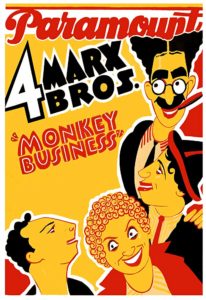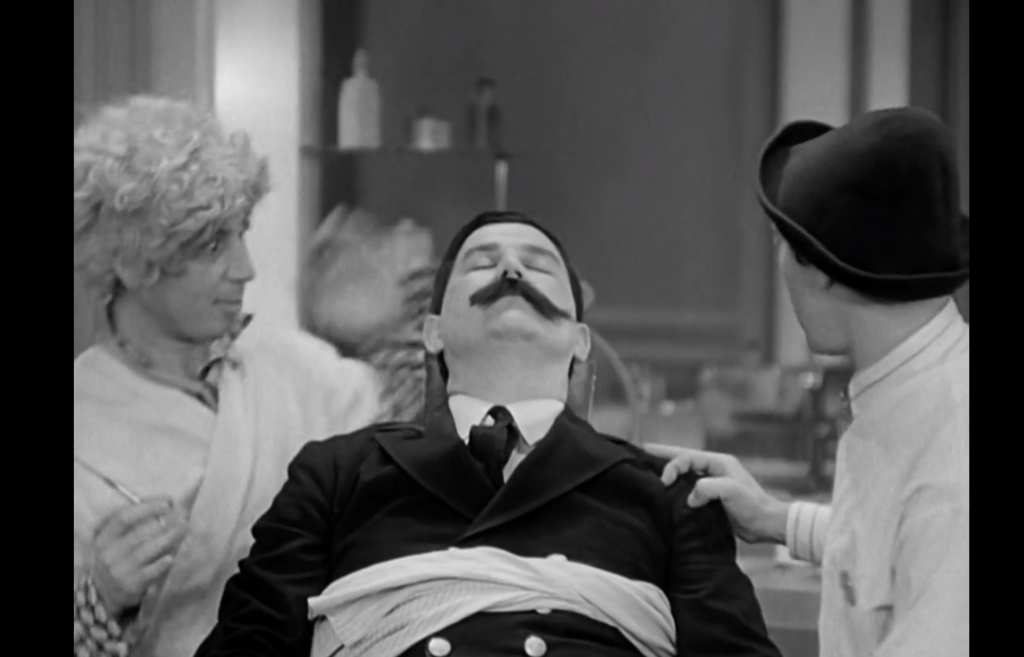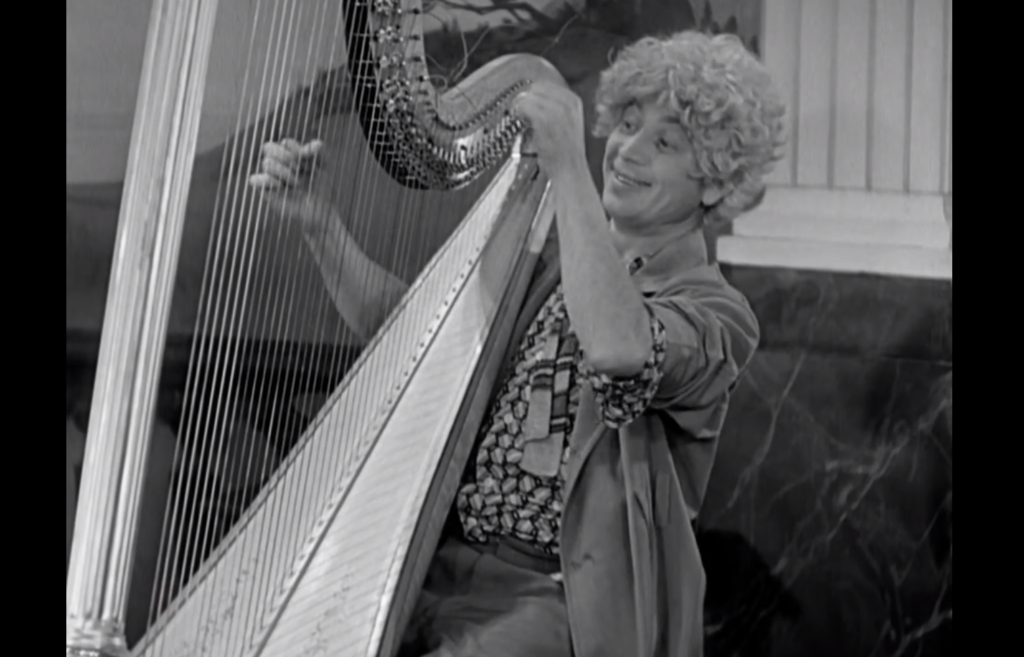“This is the only way to travel, boys — the only way!”
|

Synopsis:
The Marx Brothers stow away on an ocean liner, and soon find themselves working as bodyguards for rival gangsters.
|
|
Genres, Themes, Actors, and Directors:
- At Sea
- Comedy
- Fugitives
- Gangsters
- Marx Brothers Films
Response to Peary’s Review:
As Peary notes, it’s likely “that the Marx Brothers were never more energetic” than in Monkey Business, their first film written directly for the screen. It’s pure, zany comedy the entire way through, with amusing wordplay coming a mile a minute, and endless gags easily overwhelming the unimportant storyline. With that said, I’ll admit I don’t enjoy Monkey Business as much as the Brothers’ more narratively-polished films (such as A Night at the Opera); I also miss the inimitable presence of the “fifth Marx Brother”, Margaret Dumont. Nonetheless, it remains essential viewing for anyone seriously interested in the history of comedic cinema.
Redeeming Qualities and Moments:
- Plenty of zany sequences — as when the well-meaning Chico and Harpo gradually “trim” off a man’s entire mustache

- Harpo accompanying a soprano while she sings “O Sole Mio”, then performing his own piece (my favorite moment in the entire film)

- Countless hilarious puns (most by Chico) and one-liners (most by Groucho):
“You’re just wasting your breath — and that’s no great loss, either.”
Must See?
Yes. While it’s not quite on a level with either A Night at the Opera (1935) or Duck Soup (1933), Monkey Business should be seen by all film fanatics.
Categories
Links:
|
One thought on “Monkey Business (1931)”
A must.
While (as stated) perhaps not as strong as some other Marx Brothers films, it’s easy to keep a smile on one’s face throughout a viewing. Some of the musty jokes, puns, what have you, are easily forgiven because the brothers’ personalities are engaging – even Zeppo is winning occasionally – and their timing and inflections keep things bouncy. As well, much of the material (perhaps thanks largely to head writer S.J. Perelman) actually does hold up pretty well.
Particularly noteworthy:
[aside from an opportunity to see Thelma Todd, who died mysteriously a few years later – what would her career have been like, had she lived?]
Harpo during the Punch and Judy sequence, with his suddenly bulbous face, etc.
Chico – as always – thrilling at the piano.
Though clearly meant as garden variety visual/word play, the lengthy sequence between Groucho and bad guy Harry Woods holds appeal for gay audiences: Groucho dancing with and about to kiss him; Groucho’s line to him, “Sorry, I can’t stay; the captain’s waiting to chase me around the deck.”; Groucho’s response when Woods states they “could get along well together.”: “Well, of course, the first year, we might have our little squabbles, but then that’s inevitable, don’t you think?”